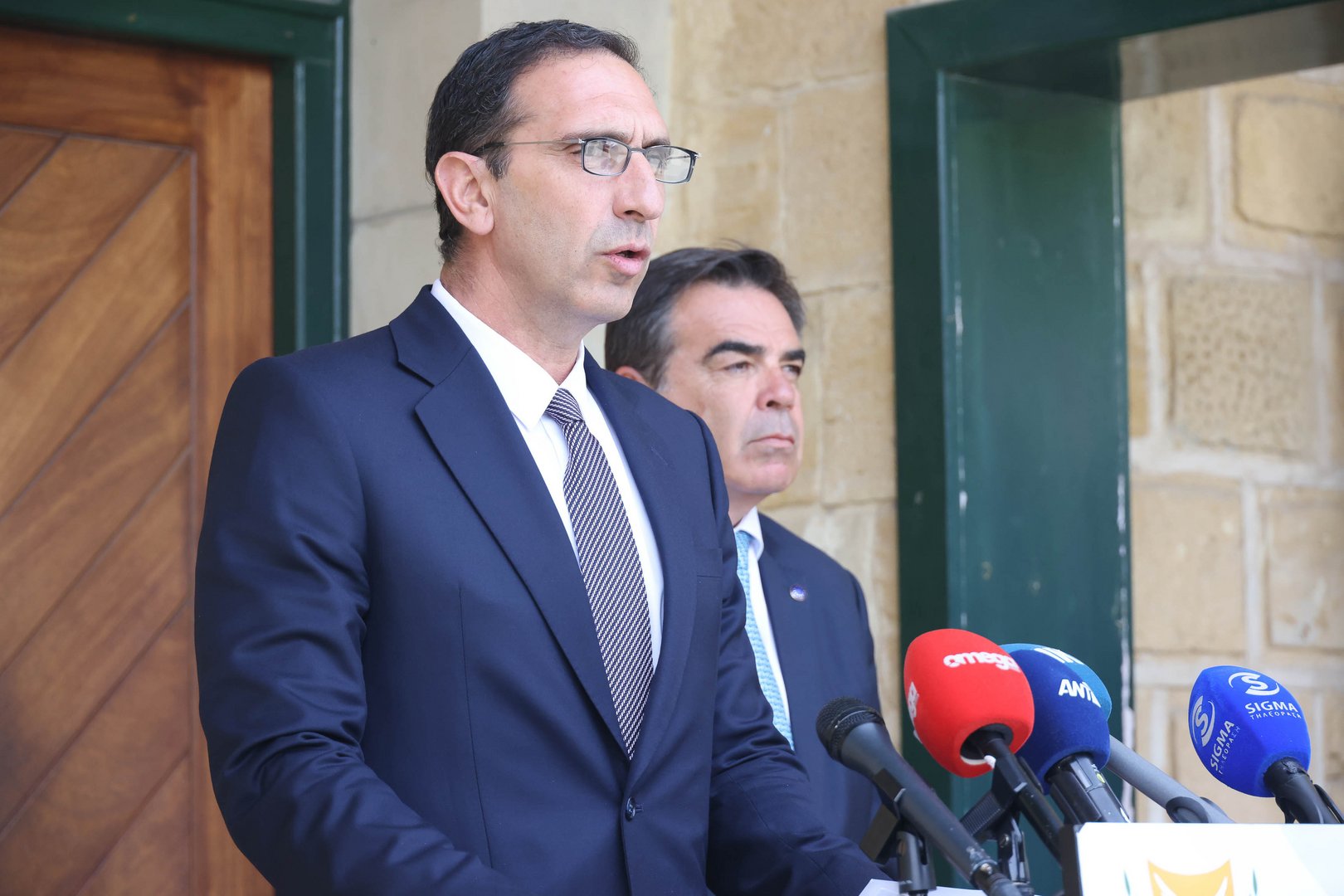Interior minister Constantinos Ioannou informed on Monday European Commission Vice President Margaritis Schinas about the migration policy being followed by Cyprus to tackle issues of illegal migration.
Ioannou said that there are four pillars that the government is following to deal with migrant flows.
He added that the first measure is to continue to prevent migrant flows across the green line.
“The green line is not an external border of the EU, but a suis generis situation. And this is why the Republic of Cyprus is limited in terms of the measures it can take internally to prevent illegal crossings from the green line, such as its surveillance by a border guard unit and the installation of electronic surveillance means,” he said.
Commenting on the measures being done, Ioannou said that the government is investing in the Eastern Mediterranean Action Plan at the European level.
“I hope that the positions of the Republic of Cyprus will be utilised, in order to have tangible and substantial results on the issue of irregular immigration from the green line, and this through a diplomatic approach to Turkey, through the use of EU policies and tools,” he said.
He added that Turkey is clearly instrumentalising the migration flows, facilitating the arrival of third country nationals in Cyprus, mainly from Sub-Saharan Africa, with migrant holding ‘student visas’ for colleges in the north, which they use to cross to the government-controlled areas.
Another priority, he said is the acceleration of procedures for examining asylum applications.
“It is known that the difficulty of the asylum system to manage the large volume of applications and the prolonged duration of their examination, was an important pull factor for irregular immigrants, as well as the circuits that guide them. We are optimistic that by doubling the number of examiners, we will be able to reduce the delays in examining asylum applications to a minimum,” he said.
The third pillar discussed with Schinas was the strengthening of infrastructures to deal with migration.
“For example, we aim to create the Hospitality Centre in ‘Limnes’ and the Pre-Departure Centre in Menoyia, which the construction is on track, and we believe that they will contribute to a large extent to the more efficient processing of asylum procedures, but also to the acceleration of returns,” he said.
He added that the last pillar that they are focusing on is the increase of returns of third country nationals to their country of origin.
The goal he said is to reach over a thousand monthly returns.
Schinas said that the migration crisis in Cyprus is not just a Cypriot issue but a European one.
“Cyprus is one of the small member states and the disproportionately large pressure it receives creates special problems, and secondly, because we have the particularity of the green line, which also poses issues of a legal and political nature, which we must deal with effectively, but also with creativity in thought and action,” he said.
Schinas added that this support will continue undiminished and will intensify in the years to come, in all aspects: in the improvement of the Pournara centre, in the creation of the new Pre-Departure Centre in ‘Limnes’ with total amounts of around €100 million, but also in the financing of returns.
Following the statements, Schinas held a wider meeting with the interior, education, and justice ministers, as well as the deputy minister of culture.







Click here to change your cookie preferences